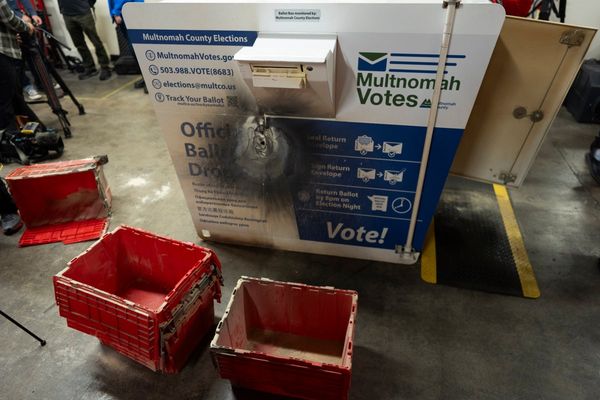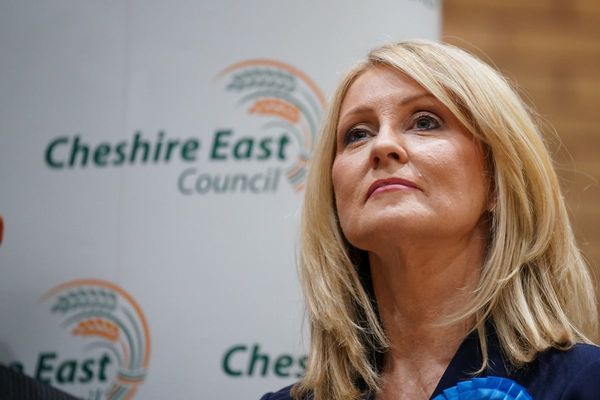
The normalization pact between the United Arab Emirates and Israel that surprised the world on Thursday is the fruit of almost 20 years of covert ties between the two tiny Middle Eastern powers, and can ultimately be traced to the 9/11 attacks on New York and Washington. Because the Saudi hijackers used Dubai as a key point to transfer funds, the Emiratis quickly latched onto the Israelis to develop the cybersecurity software that would help the UAE rescue and rebuild its credibility as the Middle East’s premier financial center. “9/11 was the big wake-up call that made it clear the UAE needed to have the best technology, and that presented an opportunity for the Israelis,” said Ghanem Nuseibeh, founder of London-based Cornerstone Global Associates and a veteran advisor to companies in the region.
Born of necessity, the two countries’ first dealings blossomed into an unusually broad relationship. Over the past two decades, business relations between the UAE and Israel have spread from computer surveillance and airport security into shipping, desalination, agricultural technology, real estate, and tourism. Most prominent in recent months has been the UAE’s interest in supporting and gaining access to Israeli research into a vaccine and treatment for COVID-19. While the common threat from Iran, the Emiratis’ aspirations to a bigger regional role, the Palestinian issue, and pressure from Washington all played a role in the peace deal, it is these business and financial relations—and the predominance of Israeli civilian, defense, and intelligence technology—that ultimately laid the groundwork for any deal. This is also where the UAE has the most to gain.
From the first tweet, it was clear what U.S. President Donald Trump and Israeli Prime Minister Benjamin Netanyahu hope to get from open UAE-Israel ties. Both the U.S. and Israeli leaders framed the deal as historic as they fight for their political lives. In one of his trademark tweets, Trump called it “HUGE.” Netanyahu, perhaps hoping to deflect from multiple indictments on corruption charges, presented the accord at a Jerusalem press conference as cementing his legacy, placing it beside former Prime Minister Menachem Begin’s ground-breaking 1979 peace agreement with Egypt and former Prime Minister Yitzhak Rabin’s 1994 peace deal with Jordan.
Crown Prince Mohammed bin Zayed, the UAE’s de facto ruler, was considerably cooler—at least in his public statements, where he focused on Netanyahu’s commitment to drop his West Bank annexation plans in exchange for a “roadmap towards establishing a bilateral relationship,” as he put it in a tweet. Palestinian Authority President Mahmoud Abbas called the pact “disgraceful” and a betrayal of the UAE’s historic commitment to the Palestinian people.
But the benefits for Mohammed bin Zayed are gradually coming into focus. Bringing the UAE’s ties with Israel into the open has broad benefits in both the political and business spheres, Nuseibeh told Foreign Policy. “This agreement significantly strengthens the UAE’s position as a regional power broker, perhaps even as the leading one,” he said, pointing to the UAE’s wide-ranging efforts to advance its soft power by promoting cultural ties and religious tolerance. (Among other signs, a new synagogue is scheduled to open in 2022 in Abu Dhabi as part of an interfaith complex.) Nuseibeh predicts that Dubai will further consolidate its position as a global center of commerce that now includes greater ties with Israeli companies and banks. The UAE is keen to develop its start-up culture and infrastructure, which could be attractive to Israeli companies, too. “Israeli start-ups operating out of Dubai will open so much opportunity for both,” Nuseibeh said.
Well before this week’s normalization agreement, the UAE had invited Israel to build a pavilion to promote its companies at Expo 2020 (now postponed until 2021) in Dubai. In early July, the UAE and Israel announced that Group 42, an Abu Dhabi-based technology company, would work on COVID-19 research with Israeli companies connected to Israel’s state-owned Rafael Advanced Defense Systems.
For several months, the burgeoning business ties appeared to be in peril because of Netanyahu’s commitment to declare Israeli sovereignty over nearly 30 percent of the West Bank, stoking Palestinian anger and condemnations from around the world. The UAE’s ambassador to Washington, Yousef al-Otaiba, took the unprecedented step of appealing to Israelis in their nation’s top-selling newspaper to call off the annexation. In a Hebrew-language column, Otaiba reeled off one example after another of the UAE’s efforts to normalize relations with Israel, warning that all of this would cease if the territories were annexed.
Now that Netanyahu has agreed to suspend the move, the two countries and the United States suggested that the possibilities for further ties are endless. In a joint statement released by the White House, the UAE and Israel said they would “meet in the coming weeks to sign bilateral agreements regarding investment, tourism, direct flights, security, telecommunications, technology, energy, healthcare, culture, the environment, the establishment of reciprocal embassies, and other areas of mutual benefit.” Direct ties between the two countries “will transform the region by spurring economic growth, enhancing technological innovation, and forging closer people-to-people relations,” the statement said.
Among the most prominent Emiratis who have engaged significantly with Israeli or Jewish investors are Sultan Ahmed bin Sulayem, chairman of international ports operator DP World, and Mohamed Alabbar, founder of Emaar Properties, which built the 163-story Burj Khalifa in Dubai, the world’s biggest skyscraper. Mubadala Investment Co., Abu Dhabi’s sovereign wealth fund, was one of the principal backers of WeWork, pouring billions into the office-sharing business started by Israeli-American entrepreneur Adam Neumann before it ran aground. Israelis who have led the way in building business connections and increasingly cordial personal ties with the Emiratis include Idan Ofer, controlling shareholder of Zim Integrated Shipping Services, and diamond merchant Lev Leviev.
The strength of the relationship was underscored in 2006 when Ofer, a billionaire from one of Israel’s wealthiest families, lobbied on behalf of DP World during its unsuccessful attempt to buy terminal operations in the United States. In a letter to Hillary Clinton, who was a U.S. senator at the time, Ofer vouched for the rigorous security measures that made his own company’s ships “very comfortable” at ports managed by the Dubai company, “especially in Arab countries,” according to a text published by CNN.
All these connections have now paid off. “Trump’s announcement normalized 20-year-old back-channel relationships,” said Kalman Sporn, managing director of Marylebone LLC, a boutique investment firm with Middle Eastern clients. “The three powers that have been most concerned with Middle Eastern stability … finally told the world that they’re officially working together.”
In making its Israeli ties official, the UAE may be blazing a trail for its Gulf neighbors to follow. “Most business people [in the Gulf countries] understand that the days of not doing business with Israeli companies will be over soon,” said Jason Greenblatt, Trump’s former Middle East envoy, who now represents Israeli and U.S. companies. “They recognize not doing business with Israel was counterproductive to everyone.” Saudis, Omanis, and Bahrainis may soon come to a similar realization.







